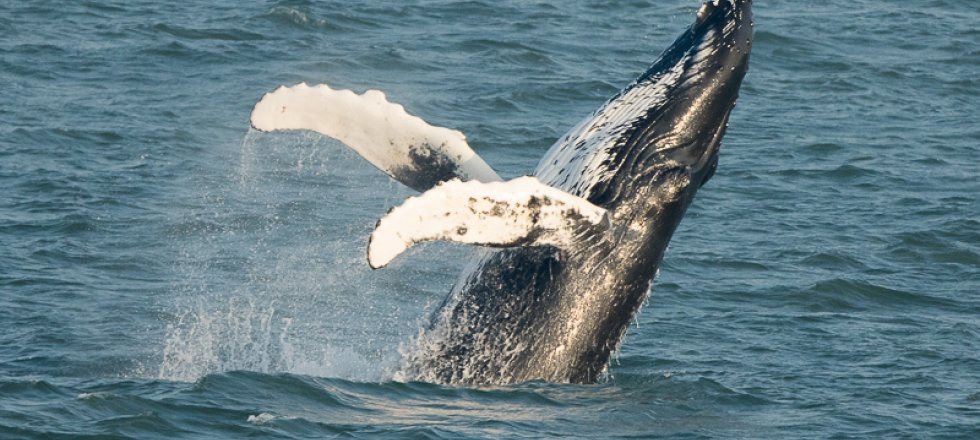Marine mammals
Marine mammals are protected under international treaties. Nonetheless, whale hunting still occurs, and human activities and climate change can disrupt and threaten populations. Wageningen Marine Research work includes monitoring and counting population sizes in the North Sea, the Wadden Sea and polar regions, analysing the stomach contents of whales beached on the Dutch coasts, and acoustic studies in the Dutch Caribbean and North Sea. Additionally, we contribute to various policy advisory committees and international fora.
Cetaceans
Through aerial surveys and acoustic research, we contribute to insights into the populations of cetaceans, mainly porpoises. Wageningen Marine Research has extensive expertise on porpoises. Thus, we can determine the effect offshore wind farms may have on the presence and foraging behaviour of porpoises.
Wageningen Marine Research conducts diet research and a contamination analysis on beached porpoises (and sometimes large cetaceans such as the sperm whale). After the Utrecht University Faculty of Veterinary Science has performed an autopsy, tissue samples and stomach contents are sent to our lab in Den Helder. Analysing the gastro-intestinal contents can help establish the cause of death and provide information on foraging habits and plastic waste in the seas.
Seals in the Wadden Sea and the North Sea
Wageningen Marine Research studies the population dynamics, dispersion, behaviour and diet of two seal species that inhabit the Netherlands: the common seal and the grey seal. We conduct an annual population estimate using aerial photography. During the birthing season, we count young seal pups. Furthermore, we track seals at sea using tracking devices (telemetry). In 2020, we followed Snow White, a seal that was released back into the ocean after having been sheltered at Ecomare Texel.
How we can help
- Aerial surveys of seals, porpoises and other cetaceans in the Wadden Sea and European Atlantic Ocean
- Stomach content analysis of cetaceans beached on the Dutch coasts, such as porpoises and sperm whales
- Acoustic monitoring of porpoises using CPODs
- Acoustic tracking of cetaceans in the Dutch Caribbean
- Policy advice: TWO, IWC, ASCOBANS etc.


